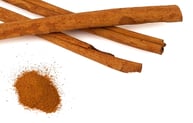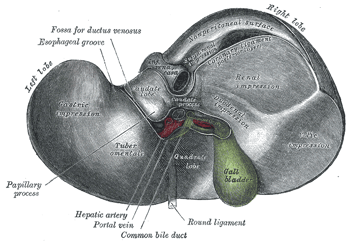
Multiple myeloma is a rare form of cancer that affects the immune system in about 0.7% of Americans. According to the American Cancer Society, approximately 26,850 new cases were expected to be diagnosed in 2015, and 11,240 deaths were expected to occur. Although there are treatments available to fight this cancer, patients frequently relapse, demonstrating the need for new treatments.
Read More
Tags:
Washington University St. Louis,
Midwest,
WashU,
St. Louis Bioresearch Product Faire Event,
cancer research,
Cancer Treatment,
MO,
St Louis,
new funding,
2016,
BioResearch Product Faire,
Multiple Myeloma

Seven researchers from the University of California, San Francisco have received “high-risk, high-reward” grants for biomedical research.
Read More
Tags:
CA,
University of California San Francisco,
Medical Research,
cancer research,
California,
Biomedical Reearch,
San Francisco,
SFVS,
Research Funding,
UCSF,
UC San Francisco,
NIH funding,
Southwest Region,
Mission Bay,
UCSF Mission Bay,
2016,
BioResearch Product Faire™
 Cancer affects the majority of the population in one way or another, through knowing someone with cancer, being exposed to it in the media, or having it oneself. Cancer treatments and cures are some of the most well funded and highly researched areas in the life sciences. Researchers at the Winshop Cancer Institute at Emory University in Atlanta, GA recently discovered that an orange pigment, called parietin or physcion, that is found in lichens and rhubarb has potential to be used as an anti-cancer drug.
Cancer affects the majority of the population in one way or another, through knowing someone with cancer, being exposed to it in the media, or having it oneself. Cancer treatments and cures are some of the most well funded and highly researched areas in the life sciences. Researchers at the Winshop Cancer Institute at Emory University in Atlanta, GA recently discovered that an orange pigment, called parietin or physcion, that is found in lichens and rhubarb has potential to be used as an anti-cancer drug.
Read More
Tags:
Emory University,
Leukemia,
cancer research,
Southern,
Cancer Treatment,
Emory,
BioResearch Product Faire Event,
Atlanta,
GA,
Southern Region,
2016,
Parietin,
physcion
.jpg?width=273&name=Aerial_of_Texas_Medical_Center_with_Downtown_Houston_in_the_background_(cropped).jpg) Sézary syndrome is a rare form of T-cell lymphoma that causes different types of lesions to appear on the skin once. Very little is known about the cause of this cancer, and there are no current cures available. Researchers from Baylor College of Medicine and the MD Anderson Cancer Center in Houston, Texas have identified certain genes that, when mutated, appear to play a role in Sézary syndrome
Sézary syndrome is a rare form of T-cell lymphoma that causes different types of lesions to appear on the skin once. Very little is known about the cause of this cancer, and there are no current cures available. Researchers from Baylor College of Medicine and the MD Anderson Cancer Center in Houston, Texas have identified certain genes that, when mutated, appear to play a role in Sézary syndrome
Read More
Tags:
cancer research,
Texas Medical Center,
Southwest,
tmc,
BioResearch Product Faire Event,
Houston,
TX,
2016,
Sezary Syndrome
 Cinnamon is a popular flavor commonly used around the world in many candies, foods and drinks. Current research shows that it might be valuable for more than just flavoring, though. (Image courtesy of Wikimedia Commons).
Cinnamon is a popular flavor commonly used around the world in many candies, foods and drinks. Current research shows that it might be valuable for more than just flavoring, though. (Image courtesy of Wikimedia Commons).
Read More
Tags:
University of Arizona,
cancer research,
Southwest,
2015,
BioResearch Product Faire Front Line Event,
AZ,
UAZ,
Tucson,
BioResearch Product Faire,
Cinnamaldehyde,
Cinnamon,
Colorectal Cancer
 The liver is a truly amazing organ, with an almost unprecedented ability to repair itself after injury. The mechanism for this ability was previously thought to be oval cells,but recent research from UCSD challenges conventional wisdom.
The liver is a truly amazing organ, with an almost unprecedented ability to repair itself after injury. The mechanism for this ability was previously thought to be oval cells,but recent research from UCSD challenges conventional wisdom.
Read More
Tags:
CA,
University of California San Diego,
cancer research,
California,
School of Medicine,
2015,
San Diego,
SDVS,
UCSD,
Research Funding,
NIH funding,
Southwest Region,
NIH grants,
Biotechnology Vendor Showcase Event,
2016
 Washington State University, in collaboration with a genetics testing company in India, is providing cancer patients with comprehensive testing for determining effective prostate and breast cancer treatments.
Washington State University, in collaboration with a genetics testing company in India, is providing cancer patients with comprehensive testing for determining effective prostate and breast cancer treatments.
Read More
Tags:
Washington,
WSU Pullman,
Microbiology,
WA,
cancer research,
WSU,
Washington State University,
Cancer Treatment,
pharmaceutical,
2015,
Biomarkers,
Genetics,
Northwest Region,
Pullman,
BioResearch Product Faire™
 For over 50 years, Stony Brook University in New York has been a venue for thousands of groundbreaking discoveries made by prominent medical researchers and clinicians.
For over 50 years, Stony Brook University in New York has been a venue for thousands of groundbreaking discoveries made by prominent medical researchers and clinicians.
Read More
Tags:
Lyme Disease,
cancer research,
New York,
Stony Brook University,
2015,
Pediatric Research,
Research Funding,
NY,
Northeast Region,
Stony Brook,
research grants,
SunySB
 Nearly 14.5 million cancer survivors currently reside in the United States, with more than 25 percent reportedly suffering from a cognitive impairment dubbed “chemo brain”, according to the American Cancer Society.
Nearly 14.5 million cancer survivors currently reside in the United States, with more than 25 percent reportedly suffering from a cognitive impairment dubbed “chemo brain”, according to the American Cancer Society.
Read More
Tags:
cancer research,
FL,
Florida,
Tampa,
NIH grant,
Southern Region,
cancer research grant,
2016,
BioResearch Product Faire™,
University of South Florida,
USF
 Researchers from the Washington State University School of Pharmacy have recently uncovered a previously unknown function of a protein called Activating Transcription Factor 5 (ATF5).
Researchers from the Washington State University School of Pharmacy have recently uncovered a previously unknown function of a protein called Activating Transcription Factor 5 (ATF5).
Read More
Tags:
Washington,
WSU Pullman,
WA,
cancer research,
cell biology,
WSU,
Washington State University,
Biology,
2015,
Pharmacy,
Northwest Region,
Pullman,
BioResearch Product Faire™




 Cancer affects the majority of the population in one way or another, through knowing someone with cancer, being exposed to it in the media, or having it oneself. Cancer treatments and cures are some of the most well funded and highly researched areas in the life sciences. Researchers at the Winshop Cancer Institute at Emory University in Atlanta, GA recently discovered that an
Cancer affects the majority of the population in one way or another, through knowing someone with cancer, being exposed to it in the media, or having it oneself. Cancer treatments and cures are some of the most well funded and highly researched areas in the life sciences. Researchers at the Winshop Cancer Institute at Emory University in Atlanta, GA recently discovered that an .jpg?width=273&name=Aerial_of_Texas_Medical_Center_with_Downtown_Houston_in_the_background_(cropped).jpg) Sézary syndrome is a rare form of T-cell lymphoma that causes different types of lesions to appear on the skin once. Very little is known about the cause of this cancer, and there are no current cures available. Researchers from
Sézary syndrome is a rare form of T-cell lymphoma that causes different types of lesions to appear on the skin once. Very little is known about the cause of this cancer, and there are no current cures available. Researchers from  Cinnamon is a popular flavor commonly used around the world in many candies, foods and drinks. Current research shows that it might be valuable for more than just flavoring, though.
Cinnamon is a popular flavor commonly used around the world in many candies, foods and drinks. Current research shows that it might be valuable for more than just flavoring, though.  The liver is a truly amazing organ, with an almost unprecedented ability to repair itself after injury. The mechanism for this ability was previously thought to be oval cells,but recent research from UCSD challenges conventional wisdom.
The liver is a truly amazing organ, with an almost unprecedented ability to repair itself after injury. The mechanism for this ability was previously thought to be oval cells,but recent research from UCSD challenges conventional wisdom.
 For over 50 years,
For over 50 years,  Nearly 14.5 million cancer survivors currently reside in the United States, with more than 25 percent reportedly suffering from a cognitive impairment dubbed “chemo brain”, according to the American Cancer Society.
Nearly 14.5 million cancer survivors currently reside in the United States, with more than 25 percent reportedly suffering from a cognitive impairment dubbed “chemo brain”, according to the American Cancer Society. Researchers from the
Researchers from the